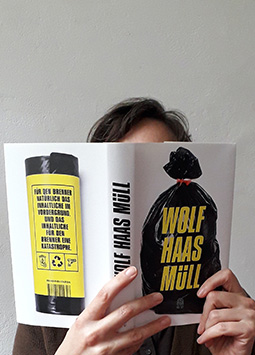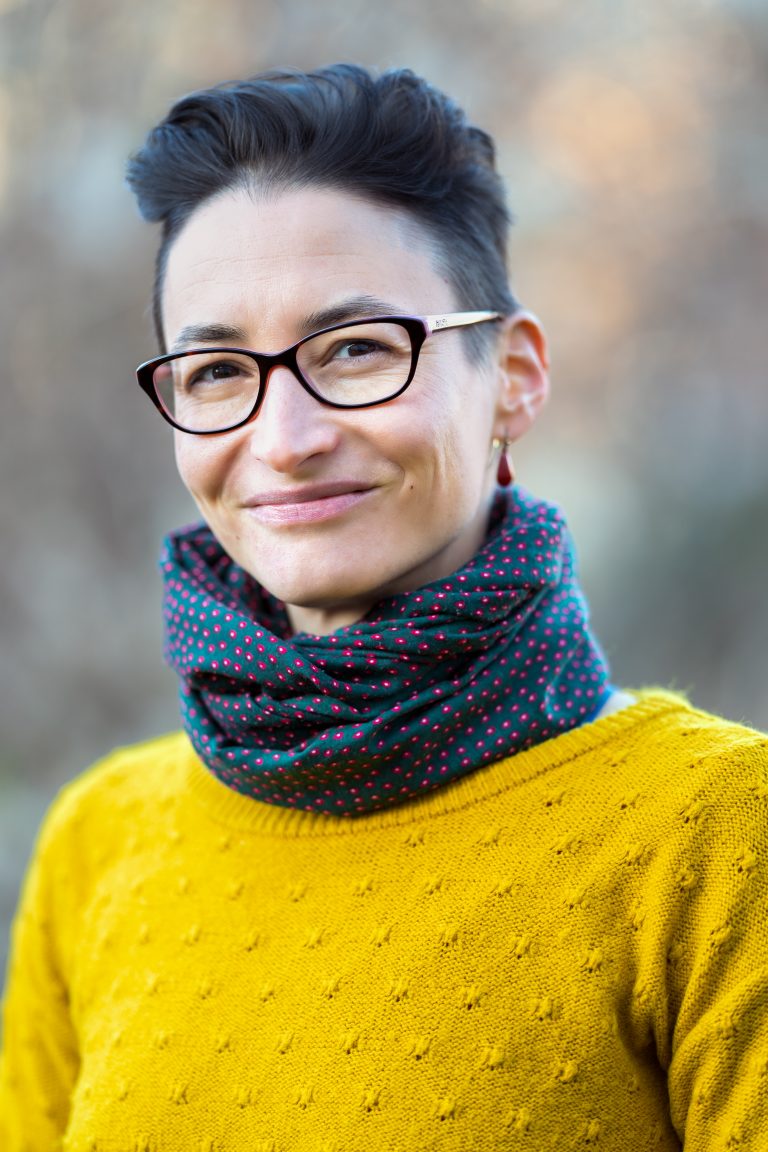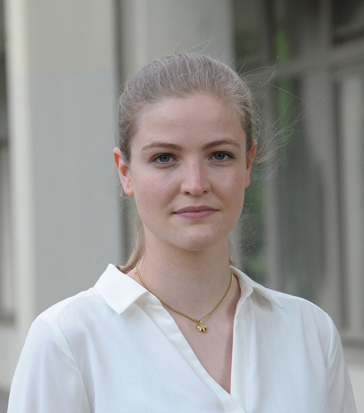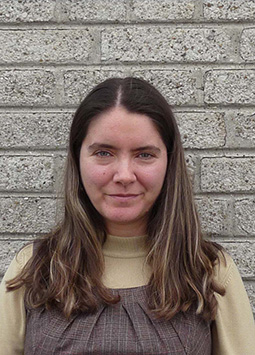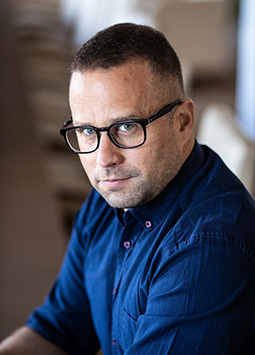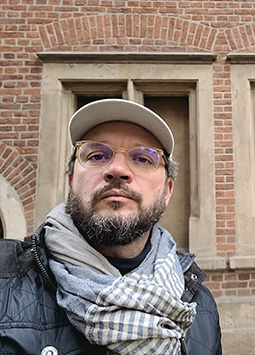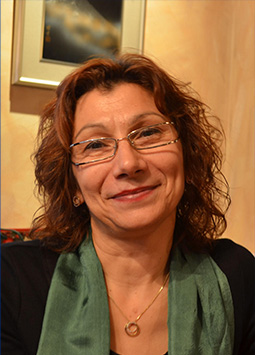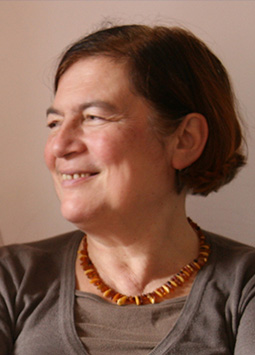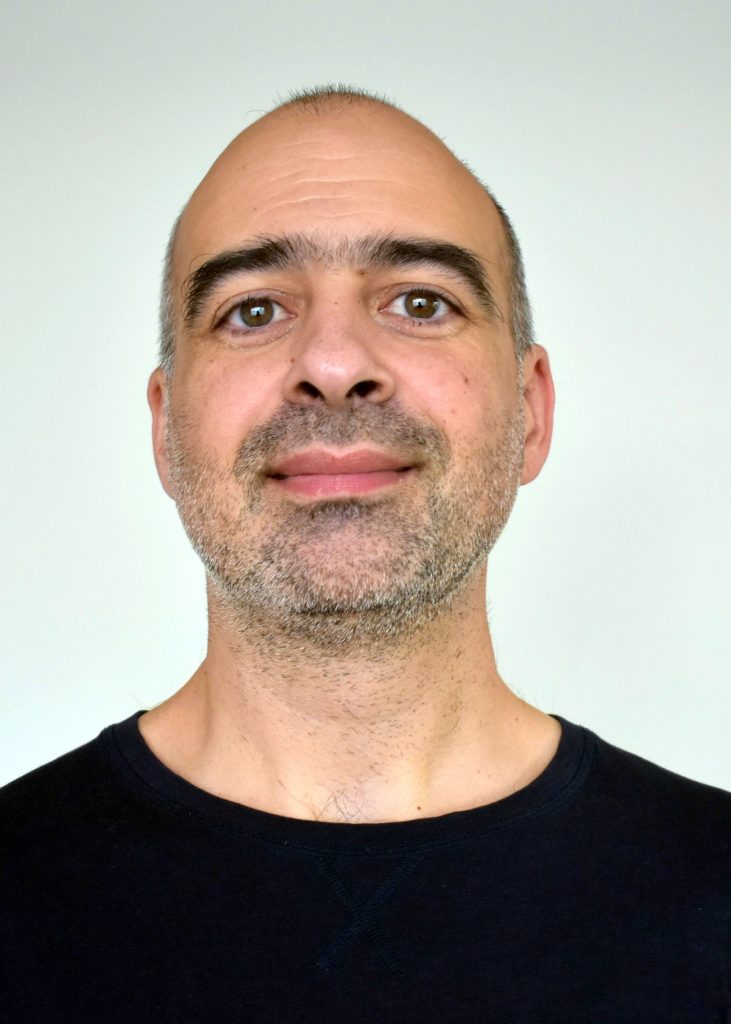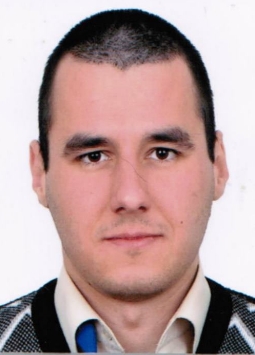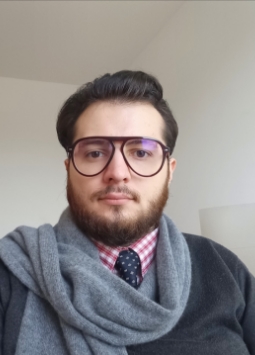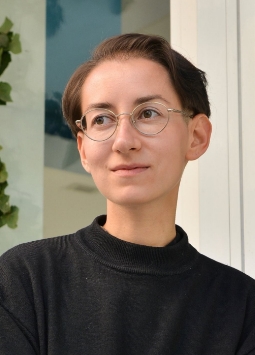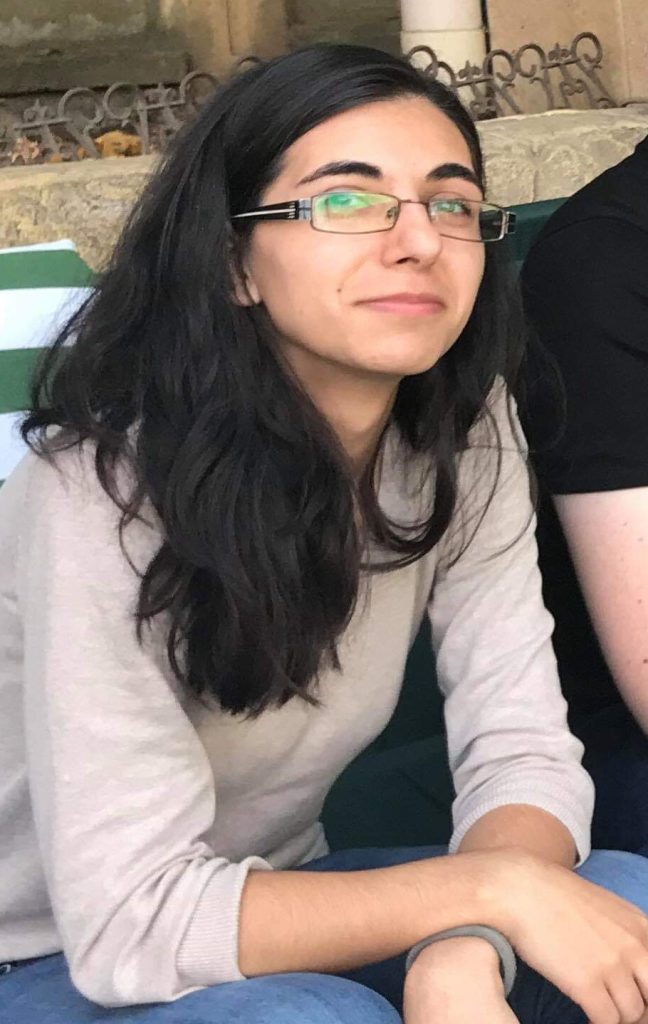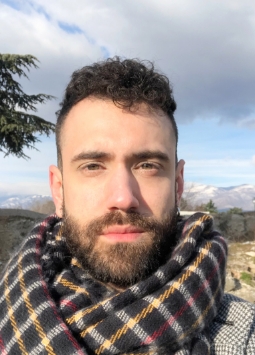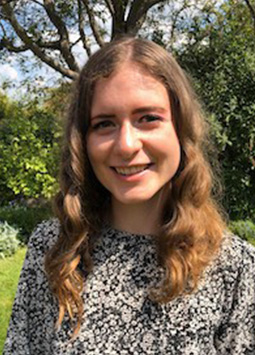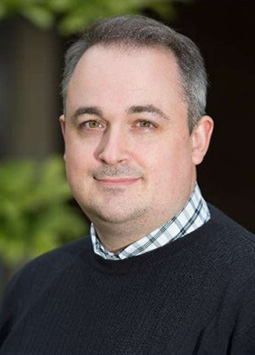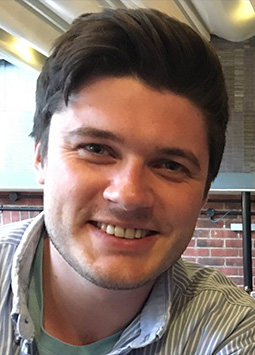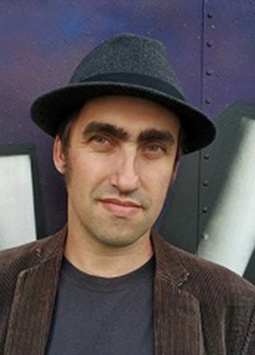People
CHARITE UNIVERSITAETSMEDIZIN BERLIN
The evolution of medical
complexity in post-war Europe
The Berlin team will test, evaluate, and revise the concepts explaining the complex relations between the state, science (including medicine) and society. Broadly accepted models (e.g. large technological systems, pharmaceuticalization) were originally conceptualized for explaining the progressive integration of medicine, industry, and economy in the West, driven by profit maximization, private initiatives, and corporate interests. How do we explain the rise of medicine in the socialist state in non-capitalist contexts and without a profit-oriented industry or “inventor-entrepreneurs“?
Viola Balz
Senior Researcher
Psychohygiene between work and leisure in the GDR, Poland, Hungary, Bulgaria, AND Yugoslavia
Viola Balz is Professor of Clinical Psychology and Psychosocial Counselling at the
Protestant University of Applied Sciences Dresden. She completed her doctorate on the history of psychotropic drugs and her research focuses on the history of psychiatry and the history of psychology and social work in the context of psychological deviance. Since 2021, she has been working at the Institute for the History of Medicine at Charité on the prevention of mental disorders in the FRG and GDR.
Her project focuses on the issue of healthy leisure behaviour, which has preoccupied all Eastern European socialist states since the 1950s. In this context, they sought to precisely record and control leisure behaviour and utilise it to promote mental health and maintain the ability to work. The research focuses on leisure time research in the GDR. Journal articles, exhibition panels, objects from the collection of the German Hygiene Museum and films on the subject of mental hygiene in youth and old age are contextualised and supplemented by leisure research from Hungary, Poland, Hungary, Bulgaria and Yugoslavia, insofar as these were received in the GDR.
Alexa Geisthövel
Senior Researcher
European matchmaking. Organizing kidney transplants across borders, 1960s-1980s
Alexa Geisthövel earned a Ph.D. in history at Humboldt University in Berlin (2000). Since 2009 her work has focused on the psy-disciplines and medicine in 20th century Germany. She has published on the history of »racial« intelligence testing, psychosomatic medicine, medical expertise in statutory accident insurance, and, most recently, on psychiatric assessment of criminal accountability. Since 2012 she has been working at the Institute for the History of Medicine at the Charité Medical School.
The project “European matchmaking. Organizing kidney transplants across borders, 1960s-1980s” looks into the communication networks and information management processes that enabled transnational organ exchange through organizations like Eurotransplant and Intertransplant. More on the research…
Fruzsina Müller
Senior Researcher
Syphilis control in Europe after 1945. Health Education, antibiotic production and (forced) treatment
Fruzsina Müller studied German language and literature and journalism in Budapest. She completed her doctoral thesis on the history of consumption in socialist Hungary in 2016 at the Institute for Cultural Studies at the University of Leipzig. Since then, her research has focused on the history of hospitals, nursing and medicine, as well as sexual violence in institutions. Her focus is on contemporary European history, especially in (divided) Germany and Hungary. She is a research fellow in the ERC project ‘Taming the Leviathan’ since June 2023, where she focuses on syphilis control in Cold War Europe.
Her research project ‘Syphilis control in Europe after 1945: health education, antibiotic production and (forced) treatment’ firstly focuses on how the antibiotic penicillin spread beyond the political borders of Cold War Europe. Penicillin made syphilis a relatively easily treatable disease for the first time. However, its (patented) production and storage had to be learned, financed and maintained. The second research question concerns the management of syphilis after the introduction of antibiotic therapy. Until then, infected people were considered a danger to the health of society. They were often isolated and forced to undergo treatment. The existence of closed venereal wards in the GDR until the 1980s shows that this practice did not end with the treatment of syphilis.
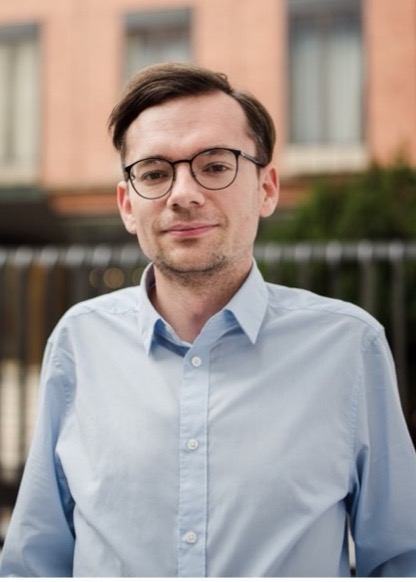
Jakub Strelec
postdoctoral Researcher
Forensic Knowledge, Violence, and Risk in Socialist Czechoslovakia and West Germany (1970s-1980s)
Jakub Strelec received an MA in social and economic history (2018) and a PhD in modern history (2023) from Charles University. In 2019-2020, he was a CEFRES PhD Fellow in Prague. In his dissertation, he focused on the history of post-war forensic psychiatry and violent crime from a comparative perspective between Czechoslovakia, West Germany, and Great Britain. Apart from his work on forensic psychiatry, he also researched domestic violence in socialist Czechoslovakia. In October 2023, he joined the ERC Team as a post-doctoral research fellow.
His current project centers on forensic expertise, violence, and risk in Czechoslovakia and West Germany after 1970. The aim of the work is to examine how the understanding of ‘violent’ and ‘aggressive’ behavior changed under the influence of new risk reasoning across the Iron Curtain and how this impacted the medical and criminal justice practices in dealing with violent and criminal behavior in state socialist regimes and liberal democratic states. The role of ethnicity will also be explored. Hence, the project involves analyzing forensic, medical, and criminological knowledge about violence and criminality, as well as exploring the forensic ‘infrastructure’ (institutions, methods, and devices) used in developing strategies to prevent and predict violent behavior. Lastly, it includes conducting case studies on the violent criminality of offenders from different ethnic backgrounds in court proceedings and their assessment by forensic experts.
Henriette Voelker
Project Manager
CENTRAL EUROPEAN UNIVERSITY
Ethical and Legal Framework and
Legacy of the European Post-War
Public Health and Medicine
The fundamental right of citizens to health and health protection was a politico-ideological and constitutional keystone of socialist states, mainly in the classical period of their development. The legal-institutional protection and implementation of this right constituted a central manifestation of the fundamental political promise of the socialist regime that it will ensure economic and social development, as well as the improvement of individual living, working and social conditions for every one of its constituents. According to the materialist politico-ideological framework of socialist rule, the right to health and health protection had a complex, paradoxical relationship with the social and economic base of the regime. On the one hand, the implementation of the right through the provision of extensive institutional guarantees enabled social as well as economic development and growth. The health of workers and other citizens (e.g., pregnant mothers, children, the elderly) was regarded as a precondition for maintaining a strong and resilient society and economy. However, the sufficient and effective protection of the health of citizens in a universal health care system assumed the availability of resources which society and the economy had to provide in their given state of development. As a further consequence of politico-ideological materialism, securing an adequate protection of citizens’ health was regarded as a material condition for socialist rule to eventually recognize the rights and liberties of citizens as individuals. In the health care context, this meant that even though as a matter of principle the individual health condition of the patient determined the care provided, the status and the rights of the individual patient within the socialist health care system were of secondary importance.
In this limb of the ethical-legal research carried out in the Leviathan project, we investigate the impact of these material and non-material premises on socialist health systems and on the health care provided by them. Health care in socialist states experienced contradictory developments – spectacular quantitative growth and more varied qualitative improvements depending on economic opportunities and on the quality of bureaucratic control, the capacity to care for the basic health care needs of everyone, and a culture of professional paternalism and patient vulnerability – which remain as positive and negative legacies in the contemporary health systems of Central and Eastern Europe.
Mária ÉVa Földes
Research Fellow
Medicalization of Death and Dying in Post-War Hungary and the Netherlands
Reproduction and privacy in the post-war Netherlands and Hungary
Mária Éva Földes, PhD is an assistant professor at the Erasmus School of Health Policy and Management. Her research interests and teaching activities focus on international health law, health care governance, and patients’ rights. Mária Éva completed her PhD at CEU at the joint doctoral degree program of the Legal Studies and Political Science departments, under the supervision of Prof Dr Judit Sándor and Prof Dr Csilla Kollonay-Lehoczky. Her PhD research focused on the emerging mandate of EU law in healthcare. After completing her PhD, she worked as researcher at Tilburg University’s Law School, assistant professor at the University of Vienna’s Institute for European Integration Research, and lecturer and researcher at The Hague University of Applied Sciences, International and European Law program.
Medicalization of Death and Dying in Post-War Hungary and the Netherlands
Medicalization of death following World War II represented a significant change in medical history, ethics, and law. The research explores the repercussions of this process in two post-war societies that followed very different paths in approaching the questions related to doctors’ involvement in end-of-life decisions: Hungary and the Netherlands. Together with Prof Dr Judit Sándor, we examine the milestones of ethical and legal debates concerning the end of life.
Reproduction and privacy in the post-war Netherlands and Hungary
What was regarded private when human reproduction was at stake? The research examines how women’ s bodies were treated in the context of reproductive care in the post-war Netherlands and Hungary. Exploring the areas of family planning and abortion, the analysis compares the Dutch and Hungarian experience and highlights the legacies of the post-war period.
Márton Varju
research fellow
Ethical and Legal Framework and Legacy of the European Post-War Public Health and Medicine
Márton Varju is research fellow at the Center for Ethics and Law in Biomedicine, Central European University. He is also research professor and head of department at the Institute for Legal Studies, Centre for Social Sciences (ELKH), Budapest. His main research interests are European market and technology regulation and their socio-economic context. He comes to the project with an extensive academic and legal professional background in public services policy and regulation.
This part of the project shall investigate the impact of material and non-material premises on socialist health systems and on the health care provided by them. Health care in socialist states experienced contradictory developments – spectacular quantitative growth and more varied qualitative improvements depending on economic opportunities and on the quality of bureaucratic control, the capacity to care for the basic health care needs of everyone, and a culture of professional paternalism and patient vulnerability – which remain as positive and negative legacies in the contemporary health systems of Central and Eastern Europe.
PÉTER KAKUK
Research Fellow
The legacy of eugenics in the post-war period
Péter Kakuk is a research fellow at the Center for Ethics and Law in Biomedicine, Central European University. He is also consultant for the WHO, at the Health Ethics & Governance Unit, Research for Health Department. He has extensive experience in conducting research and teaching bioethics, health care ethics and law courses at health sciences programs. He was participating in research ethics committee work for a variety of organizations (European Commission, ETT TUKEB, WHO). His main research interests are in the ethics of new technologies, research ethics and integrity studies.
The history of eugenics was written with an Anglophone accent. The dominant story is like a WWII movie where scientists are British, enthusiastic supporters are American, ruthless politicians are German Nazis and the screenplay is written by the ELSI department. Studies on post-war eugenics in Europe, especially in the socialist countries scarcely received scholarly attention.
The main research question would be: how can we approach eugenics in the post-war period? In what sense can we talk about eugenics under socialism? Can we identify practices that could be put under the eugenics umbrella, and in which sense? This part of the project will focus on various interpretations and practices of eugenics in selected countries.
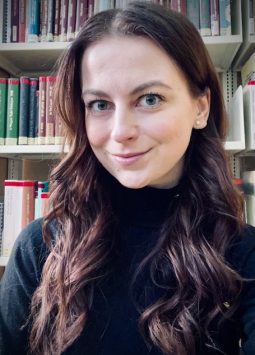
Viola Lászlófi
Junior Researcher
Biopolitics, Medicalization and the Social Role of Physicians in State Socialist Hungary
Viola Lászlófi is PhD candidate working towards a degree in the joint program of École des Hautes Études en Sciences Sociales (Paris) and Eötvös Loránd University (Budapest). She is interested in the history of psychiatry in Eastern Europe and the social history of medicine with special attention to the transcultural aspects of scientific knowledge transfer in the twentieth century.
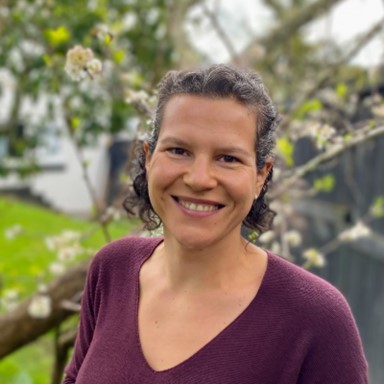
Branka Bogdan
Postdoctoral researcher
Reproductive research across the Iron Curtain: Women, birth control, and clinical trials in socialist Yugoslavia, 1945-1989
Branka completed her PhD at Monash University in March 2020 under the supervision of Paula Michaels and Michael Hau. Branka’s dissertation analysed reproduction, contraception, and abortion in socialist Yugoslavia, 1945-90. Her research revealed that reproductive regulation played a key role in Yugoslav state formation in the second half of the twentieth century, and her approaches to oral history brought the past into conversation with the present. Branka’s recent research has focused on the Auckland Antenatal Steroid Trial (1969-1974) through which she has examined the development of fetal medicine and clinical research in New Zealand in the second half of the twentieth century. In January 2024, she joined the Leviathan Project as a Postdoctoral Researcher.
Branka’s current project sees her return to research in Yugoslav history of women and medicine. The research begins in 1945 with the post-war global boom of pharmaceutical and technological innovation into reproductive and contraceptive therapies, the rise of Western second-wave feminism, and the beginnings of Yugoslav socialism. The research focuses on interventions into women’s reproductive bodies, and examines the state of clinical research in Yugoslavia as the country’s communist leaders developed a vision of a centralised and federalised socialist state. Further, the research considers the ways that Yugoslav physicians and researchers navigated and affected international developments in informed consent, women’s participation in clinical research, and the ways that risk in pregnancy was conceptualised.
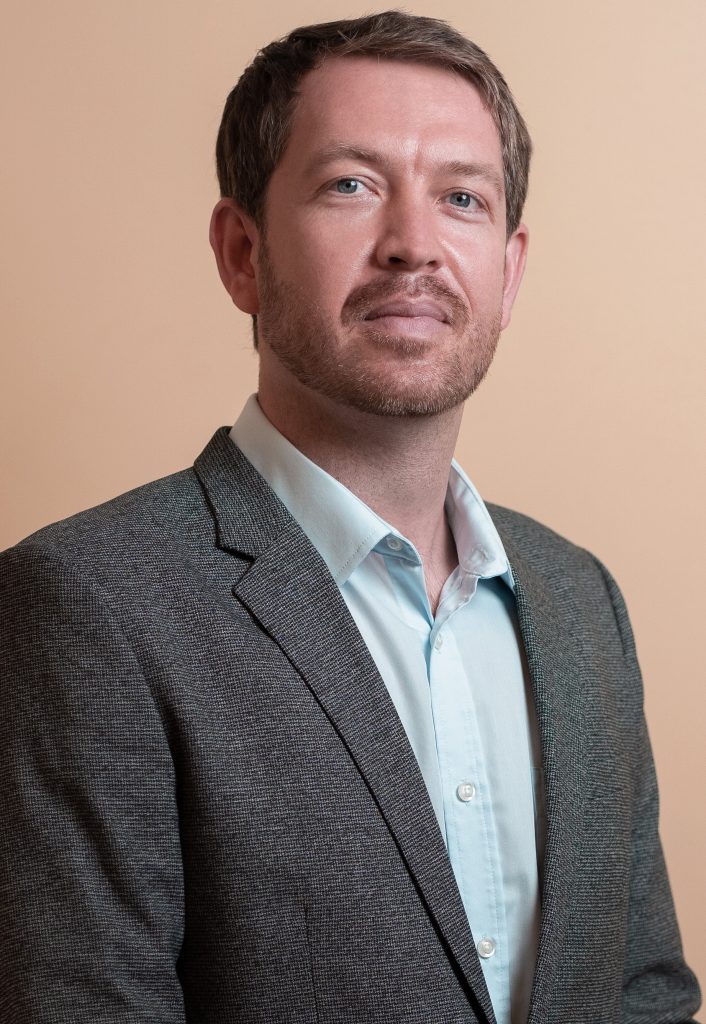
Barna Szamosi
Postdoctoral researcher
The development of reproductive medicine in hungary during the period of 1945-1989
Barna Szamosi defended his PhD in Comparative Gender Studies at Central European University in 2019. Since 2015, he works at Eszterházy Károly Catholic University at the Institute of English, American and German Studies. His research interest is at the intersection of medical history and biopolitics. He currently studies the role that eugenics played in the development of reproductive medicine in the state-socialist period.
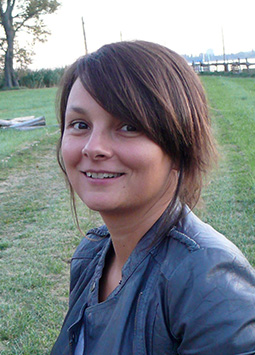
Kriszta Zsukotynszky
Project Manager
Institute of Ethnology and Folklore
Studies with Ethnographic Museum
— Bulgarian Academy of Sciences
Biopolitics East and West: Politics,
discourses, medical practices
Following, metaphorically speaking, the life span of the human being, the Sofia team will examine politics, discourses and practices in relation to birth, growing up and ageing.
We aim to highlight complexity of demographic politics and labour, and social policies, and their interplay with fundamental values relating to topics, such as sexuality, bodily integrity, and the definition of life. The focus is on the forms of producing knowledge that get internalised and guide the behaviour of population groups and individuals.
A focus on the interconnectedness of the heterogenic national bio- and demographic / population politics and practices can break the dominant dichotomising approach, and reveal important insights about their historical dynamics, nuances, variations, and interconnections.
Daniela Koleva
Senior Researcher
Ageing East and West:
Moral values, legal norms, medical practices
Daniela Koleva is professor at Sofia University. Her research is in the fields of social history, oral history and anthropology of socialism and post-socialism, gender, biographical and cultural memory, social constructionism. Daniela has got research grants from Maison des Sciences de l’Homme (Paris), Wissenschaftskolleg zu Berlin, Imre-Kertesz Kolleg (Jena), and has lectured at the universities of Fribourg, Regensburg, Tübingen, Lund, Sao Paulo. She has published a monograph on the ‘normal life course’ in socialist Bulgaria and has edited a series of collective volumes on life politics under the communist regime in Bulgaria.
This sub-project will analyze how ageing and old age were handled on both sides of the Nylon Curtain based on studying 1) discourses about biographic careers, ageing and old age; 2) policies and institutions for care of the elderly and people with disabilities; 3) practices related to life course situations (with a focus on ageing), which can possibly single out individual agency vis-à-vis institutional settings. The project sets out to explore the medicalization of ageing and ‘disability’ in a comparative context at the level of discourses, policies and institutional arrangements.
Kristina Popova
Senior Researcher
Politics of childcare and education — concepts, instructions and practices
Kristina Popova is a historian, PhD, Associate Professor teaching Contemporary History at the South-West University “Neofit Rilski” – Blagoevgrad, Bulgaria (since 1998 – ). She has received research grants and was invited to teach as Guest Professor at the University of Vienna; IOS Regensburg; the Karl Franzens University Graz, University of Siegen, University of Leipzig and others. She has rich experience in conducting research and teaching history of biopolitics and social welfare, history of childhood and youth. She is the author of numerous publications on the history of child protection and childcare in Bulgaria and on the ‘Balkans’.
The research aims to explore the plurality of care (in the West) and the evolution of the state care concept in the East. The accent is on the different concepts, norms, discourses, and practices of categorization of people in “normal” and “abnormal”, definitions of intellectual and learning abilities, definitions of labour capacity, and concepts of the cultural value of the individual and of vulnerable groups. A special research interest is also paid to the use of sedative and sleeping medicaments in children therapy.
Ivaylo markov
research assistant
Ivaylo Markov is an ethnologist, PhD, Assistant Professor at the Institute of Ethnology and Folklore Studies with Ethnographic Museum at the Bulgarian Academy of Sciences. His research interests are in two main fields: migration studies and heritage studies. He works with different ethnic, cultural and social groups (some of the dispersed across state borders) in several SEE countries (Albania, Bulgaria, Kosovo, North Macedonia, Serbia and Slovenia). He is the author of more than 70 articles and book chapters and the monograph Migrations and socio-Cultural Dynamics: The Albanians from the Republic of Macedonia, 2015 (in Bulgarian).
Georgi Todorov
junior Researcher, phd student
Politics on the child-care internats for children with disabilities in East occupation zone/GDR, USSR and PRB during the first postwar decade
Georgi Todorov is PhD in History. He has several articles on different historical topics – from Soviet heraldry to 19th-century Balkan city planning. His PhD Thesis defended in the SWU Neofit Rilski is on socio-economical transformations in the socialist states from perspective of ideology and state.
The task of the project is to reveal the attitudes of the centralizing (and modernizing) socialist states — the USSR, the PRB and the GDR — at the theoretical, empirical and practical levels towards children with mental disabilities.
The main goal is to build as full as possible a picture of the care (or careless) for this marginalized group in the socialist state and society. Also, the project will track the establishment of cooperation and interaction within the Eastern Bloc itself (between scientists and states) and outside – with the Western Bloc (especially in the case of the GDR) and the WHO (the classification of mental disorders).
Inxhi Brisku
junior Researcher, phd student
AGEING BETWEEN HOME AND INSTITUTIONS: ALBANIA AND ITALY IN THE SECOND HALF OF XX CENTURY.
Inxhi Brisku graduated with a bachelor’s degree in Political Sciences from University of Tirana and a master’s degree in “European Politics and Society” from Charles University in Prague, Czech Republic. He has also followed another master’s in Holocaust Studies at the University of Haifa and during his studies has participated in exchange programs and research fellowships. His research interests are in political history, memory studies, studies of Cold War and state socialism.
His research project “Ageing between Home and Institutions. Comparison of Albania and Italy (1944–1990)” intends to analyse the commonalities between ageing institutions between two countries as Italy and Albania, which although in opposite side of Iron Curt, had a common pre-WWII history and the previous had strongly influenced the later in many sectors, including health care and social services.
Except for the institutions this study also intends to analyse commonalities and differences in people’s mentality regarding ageing at homes and social institutions.
Slava Savova
junior Researcher, phd student
Solid structures, aqueous healing. Between natural resources and manmade technologies: balneosanatorium infrastructures in postwar Europe and the care for the working body
Slava Savova studied at the National Academy of Music in Sofia, Bulgaria (M.Mus.) and at the Glasgow School of Art (B.Arch.). Between 2013 and 2018 she was trained and worked as an architect in the offices of OMA in New York, Rotterdam and Hong Kong. In 2020 she co-led with architect Maya Shopova a strategic development project for the Central Mineral Bathhouse in Sofia within an Open call for concepts supported by Sofia Municipality/Sofiaplan (1st place awarded). In 2020 she started independent research into the thermal waters, public baths and balneosanatoria in Southeast Bulgaria, with the support of the National Culture Fund – Bulgaria.
Slava focuses on the extensive network of balneosanatorium facilities built or expanded between the 1950’s and 1980’s in Eastern Europe. The research approaches the balneotherapeutic infrastructures as a complex nexus that reveals the relations between labor, healthcare and recreation within the broader framework of the biopolitics of the socialist state. In order to unveil the symmetrical and contrasting policies across the “Nylon” curtain, she will examine the entanglements between post-war modernist architecture and medical technology in the case of balneology.
Denitsa Nencheva
POST-DOCTORAL RESEARCHer
Ab)normal” Aging under State Socialism: Medicalization, Gerontological Discourses, and Gender Aspects (Behind and Beyond the Iron Curtain)
Denitsa Nencheva is a Post-Doctoral Research Fellow. She holds a PhD in Sociology from the Plovdiv University “Paisii Hilendarski”. Before that she completed a Bachelor’s program in “Social Anthropology” and a Master’s program in “Social Analysis and Interpersonal Relations” at the same university. She is a two-time research fellow of the “National Programme for Young Scholars and Post-doctoral Fellows”. Her research interests are mainly of an interdisciplinary character and include the fields of reflexive sociology, medical anthropology, critical theory, gender studies and socio-analysis along with phenomenology and psychoanalysis. Denitsa’s most recent work examines topics dealing with the social construction of sex and gender regarding roles, identities, expectations and social sanctions on the one hand, and on the other – the Late-modern forms of anxiety and fear with a focus on normalization, medicalization and/or pathologization.
The current project’s main goal is to examine the ideological strategies used for the construction and regulation of ‘aging’ and ‘old age’ as social categories during the second half of the XX century. The analytical focus will be aimed at the socialist state’s gerontological discourses through the notion of medicalization by analyzing the dynamics and the (hypothetical) metamorphoses in the “presentation” of the normative (and everyday) understandings regarding the category of the so called “third age” and its socially and ideologically leveled “(ab)normal properties”. An emphasis will also be placed on the possible gender and sex-based demarcations in these processes, as well as the dynamics of gender performativity with relation to old age. The study will draw mainly on three paradigmatic tropes of the regime’s official ideology – the privileged role of Labor, the ‘Cult of Youth’ and the handling of the so called ‘Woman Question’. The research will rely on a comparative analysis of serial data acquired through the review and analysis of selected specialized and popular periodicals from that period which contain different forms – explicit and implicit – of pedagogical reading.
TIAGO PIRES
POST-DOCTORAL RESEARCHer
DECOLONIZING MENTAL HEALTH: THE EARLY DAYS OF EUROPEAN ETHNOCLINICS AND GLOBAL TRANSCULTURAL PSYCHIATRY
Tiago Pires is a Post-Doctoral Research Fellow. He holds a doctoral degree in History from University of Campinas (UNICAMP, 2015-2020), in which he initiated the investigation of ethnopsychiatry and different cultural languages used to cope with subjective suffering in contemporary European history. Tiago also holds a master’s degree in Cultural History from UNICAMP (2012-2014) and a master’s degree in Sociology from Roma Tre University, La Sapienza and Tor Vergata’s inter-institutional program (2017-2018). During his master studies he was a visiting researcher at the University of Udine (2014), and during his PhD he was a visiting researcher at Roma Tre University.
Tiago’s research explores the theoretical roots and the (dis)connections between Western ethnopsychiatry, Eastern folklore medicine/psychiatry during the socialist period, and the beginning of global transcultural projects developed especially by the World Health Organization through The International Pilot Study of Schizophrenia (IPSS, 1966-1974). The main goal is to analyze, from a global history perspective, how these projects that emerged during the Cold War were connected to the process of “decolonization” of mental health.
Violeta periklieva
Project Manager
University of hamburg
Histories and Legacies of Post-War
Medicine in Europe
The Hamburg team uses an ‘integrative and integrated’ historical approach (Friedländer, 2007) to analyse the post-war interactions between European doctors, medical personnel, scientists, policy makers, ethicists, activists, patients, and trial participants. This approach allows for a multifaceted exploration of how healthcare visions, policies, and practices were shaped, exchanged, negotiated, and introduced across Europe following the Second World War at both the expert level and within different manifestations of the public sphere. They examine the perspectives of experts, interest groups, pharmaceutical companies, regulators, corporations, universities, research institutions, and grassroots and campaign organisations to offer a detailed and balanced insight into the support for, and resistance against, utopian ideals for medicine, health, and societies in Europe. This research encompasses multiple historical themes such as human experimentation, medical ethics, chemical enhancement, eugenics, bioscience innovation, reproductive policies, and vaccination campaigns to examine how countries in both the East and the West shared similar medical research agendas and health policy objectives. In a contemporary Europe that is increasingly divided, mapping commonalities and post-war collaboration in medicine and science beyond ideological fault-lines enables us to greater conceptualise Europe as one, forging shared identities, helping to bridge divides, and allowing new understanding of how the health aspirations of the recent past affect our communities today.
Kate Docking
Post-Doctoral Research Fellow
Women’s Reproductive Rights in Post-War Europe
Kate Docking is a Post-Doctoral Research Fellow. She holds an MPhil in Modern European History from Cambridge and a PhD from Kent. Her doctoral research “Reframing Gender”, focused on the experiences of the female medical personnel who worked at Ravensbrück concentration camp. She has recently published on this subject in the German History journal under the title: “Gender, Recruitment and Medicine at Ravensbrück Concentration Camp, 1939–1942” (2021). Kate has also worked as an Associate Lecturer at the University of Kent.
Kate is interested in the history of gender, medicine and everyday life in post-war Europe. She is currently working on the history of reproduction, with a particular focus on how policies and practices associated with abortion and contraception affected the management of health and medicine in post-war Europe. Her work analyses the exchange of ideas between sexologists about reproductive practices across the “Nylon” curtain, providing new historical context to understand the role of women’s inequality and its connection with rights-limiting abortion legislation today.
James Farley
Post-Doctoral Research Fellow
Social Dynamics and Health Communications in East and West
James is Project Manager and a Post-Doctoral Research Fellow. He completed his PhD at the University of Kent in 2016. In 2016 he organized an international conference on ‘China’s Propaganda System: Legacies and Enduring Themes’ and his Monograph, Model Workers in China, 1949-1965 (2019) was publish by Routledge. Recently, James co-edited Redefining Propaganda in Modern China, published by Routledge. He is Project Manager and researcher for the ERC project ‘Taming the European Leviathan’ with a particular interest in the policy and propaganda of vaccination programmes and health communication during the Cold War period.
James is interested in exploring the development of health communication strategies that were a result of the demographic consequences of the end of empire for the nation states of Europe. Public health campaigns attempted to tread a fine line between the imperative to integrate new communities into wider society whilst also targeting those believed to be most ‘at risk.’ Focussing on the control of Tuberculosis in the United Kingdom and East Germany in the post-war period, James examines how these shifting social dynamics impacted on health communications as expressed via public policy debates, government information films and poster campaigns.
David Peace
Post-Doctoral Research Fellow
Gene Mapping, Genomics, and Imagined Futures in Post-War Europe
David is also an Associate Fellow of the Higher Education Academy, UK, and has taught as an Assistant Lecturer on both undergraduate and postgraduate modules in the history of medicine at the University of Kent, UK. He recently successfully defended his PhD thesis, titled “From Galtonian Eugenics to Biosocial Science: The Intellectual Origins and Policy Implications of Quantifying Heredity in Interwar and Post-War Britain.” He previously completed studies for an M.A. in philosophy at the University of London (2012-2013) and a B.A. in history at the University of Kent (2009-2012).
David’s research explores the historical relationship between developments in quantitative analysis and the medical biosciences across the 20th century, specialising in the influence of both eugenics and human genetics in population health policies. His work is embedded within various historiographical traditions, including the history of ideas, the history of science and medicine, and social and political history.
Will Studdert
Post-Doctoral Research Fellow
East-West Relations:
Disinformation, Dissent, and International Solidarity
Will is a Post-Doctoral Research Fellow. His doctoral research at the University of Kent (2010-2015) incorporated elements of cultural, media and political history to explore the uses of jazz music for morale building and subversion in World War II propaganda. It was published as The Jazz War: Radio, Nazism and the Struggle for the Airwaves in World War II by Bloomsbury Academic (2019). Most recently he has been studying the BBC German Service’s broadcasts to the German Democratic Republic, in particular through the lens of Ministerium für Staatssicherheit (Stasi) surveillance of listeners and journalists.
Will’s work looks at the exchange of ideas and mutual influence across political and cultural boundaries. He is particularly interested in the subversive use of medical disinformation and cultural propaganda during the Cold War, as well as questions of political dissent and networks of international solidarity among doctors, for example the International Physicians for the Prevention of Nuclear War (IPPNW). Further research interests include the history of everyday life, subculture, and society in the German Democratic Republic.
Naomi rio
Phd student
Naomi Rio holds a Bachelor’s degree in History from the University of Nantes, France, as well as a Master 2 Research in “History of Africa and the Middle East” and a Master 2 Professional in “International Cooperation in Africa and the Middle East” from the University of Paris 1 Panthéon-Sorbonne, France. During her studies, she specialised in the history of Southern Africa and gained work experience in journalism and diplomacy in South Africa. Her main research interests are history of science and medicine, Southern African history, Cold War studies, and history of international relations.
Her PhD project, ‘Human Experiments in Apartheid South Africa and Namibia 1948-1990′, aims to interrogate the ideologies and policies of experiments carried out by the South African governments as part of the apartheid project by analysing their racial, segregationist, and eugenic dimensions. This research has a global dimension, anchoring the study in the local context of the South African Border War and the international context of the Cold War. In parallel, the project also intends to explore central aspects of the post-apartheid era, by analysing the testimonies of the Truth and Reconciliation Commission (1996-2003) with subsequent responses to the apartheid governments’ experiments.
